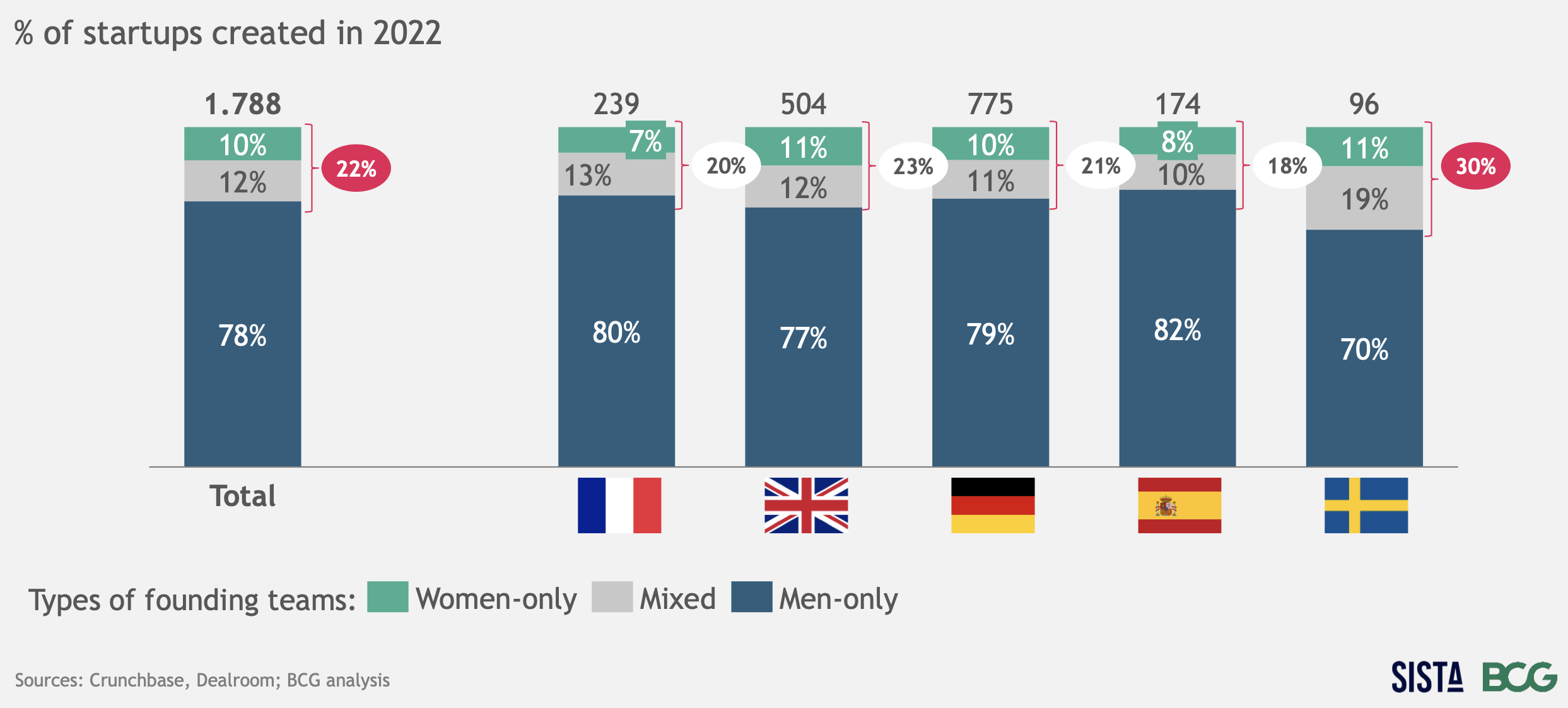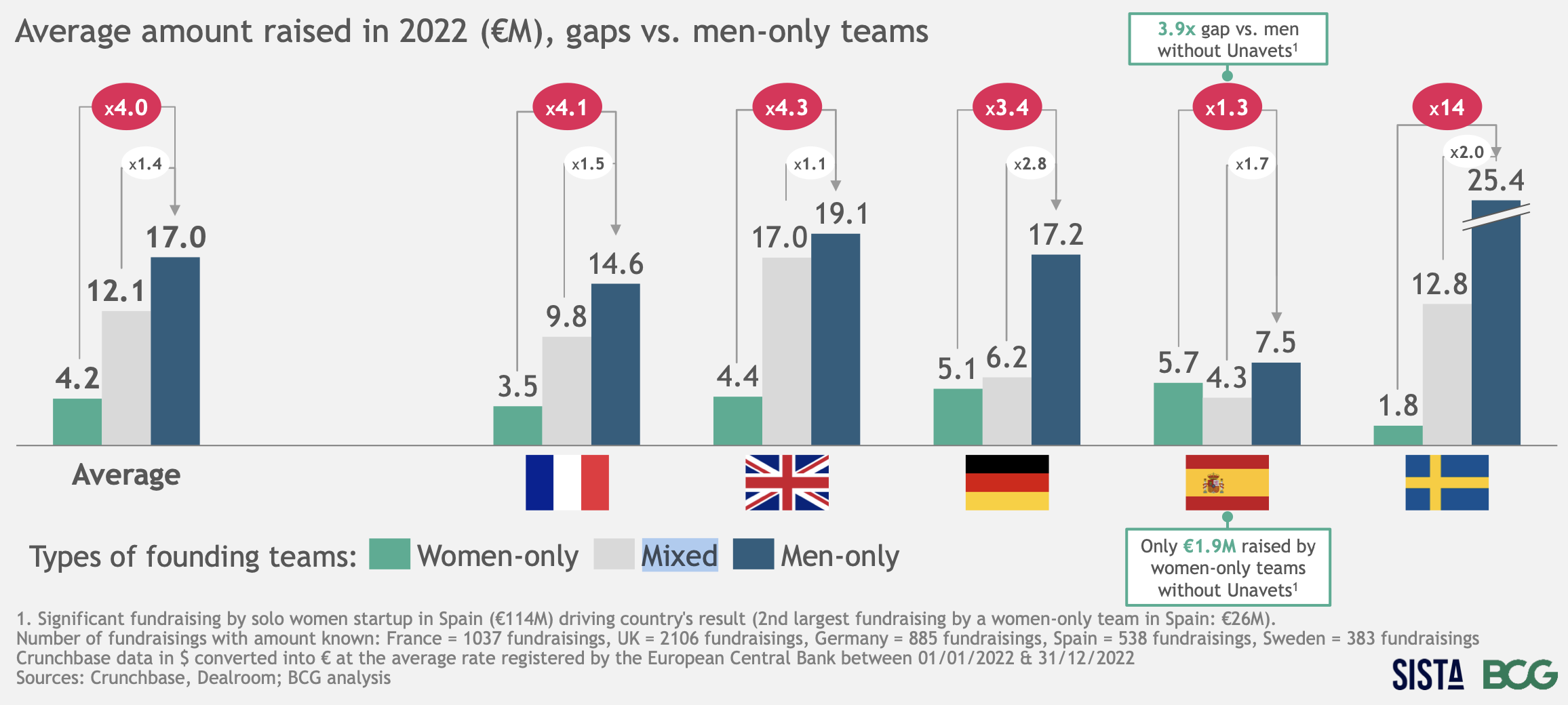According to a new study from Sista and the Boston Consulting Group, women are still underrepresented in the European tech ecosystem. Only 22% of startups created in 2022 included a woman in the founding team. And when you look at women-only founding team, that number drops to 10%. That means that, yes, 78% of European startups founded in 2022 only had male founders.
To put it another way, one in two women partner with men to create a startup, but only one in ten men partner with women when it’s time to start a startup.
This year’s study focused on five European countries in particular — France, the U.K., Germany, Spain and Sweden. While women are still very much underrepresented in France, the U.K., Germany and Spain, Swedish startups are faring better — at least slightly. In Sweden, nearly one in three startups have at least one woman in the founding team.
This is what it looks like:

Image Credits: Sista, BCG
In the U.S., startups with all-women founding teams received 1.9% of VC funds that were invested in 2022. In Europe, women-only team capture 7% of angel and pre-seed funding. But that number drops drastically as you look at late-stage startups. Only 2% of Series D rounds (or later) were raised by startups founded by women only.
That means that the financing gap increases as startups become more mature. That also means that there are less role models even though role models play a critical part when it comes to inspiring newcomers to start a startup.
Startups with at least one women founder fare better. In 2022, mixed teams raised €12.1 million on average while men-only teams raised €17 million. As for women-only teams, investors only chose to invest an average of €4.2 million on those companies.

Image Credits: Sista, BCG
Those funding discrepancies could be explained with the original and main issue in the European tech ecosystem — women are underrepresented across the board, from startup founders to investors and tech executives.
That’s why Sista has a charter for investors and VC firms to enhance gender parity. By 2025, Sista hopes that 25% of startups funded by “investor allies” will have at least one woman co-founder. And that number should rise to 30% by 2030 in order to reach 50% by 2050.
European startups still have a long way to go to achieve gender parity by Romain Dillet originally published on TechCrunch
from TechCrunch https://ift.tt/rJoA80V
No comments:
Post a Comment